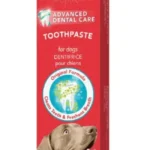You are excited to bring a new puppy to your home but are you ready for the challenges? It gets more challenging especially if you have other pets in the home. Among the most frequent concerns dog owners encounter is their older dog growling at new puppy.
Understandably, this reaction may seem alarming, especially when you are hoping your pets will quickly become best friends. However, growling is a form of dog communication, not necessarily a sign of aggression. Understanding the reasons behind this behavior and knowing how to manage it can pave the way toward a more harmonious household. Here is everything you should know.
Why Does My Older Dog Growl at New Puppy?
Introducing a new puppy is greatly disruptive from your older dog’s perspective. For you, the change brings more love. To them, a new puppy means territorial changes, routine interruptions, and a puppy that doesn’t understand boundaries. Here is why your older dog growling at new puppy happens in the first place.
Table of Contents
1. Boundary Setting and Pack Dynamics
Dogs are inherently social animals that operate within a pack hierarchy. When a puppy enters the home, they bring a new level of energy and disrupt the established order. Older dogs may growl as a way of telling the puppy to observe personal boundaries or comply with the house’s social structure. This behavior is their way of teaching the puppy proper “dog etiquette.”
Turns out, it is normal for an older dog to express annoyance by growling or snapping at a puppy that doesn’t yet understand social rules. These growls are often a warning and shouldn’t immediately be considered as aggression.
2. Resource Protection
Resource guarding is another common reason. Your older dog has likely established ownership over toys, food bowls, or even your lap. With the arrival of the puppy, they may perceive a threat to these resources and growl to assert dominance over what they regard as theirs. Puppies’ limitless curiosity can make this situation worse as they are prone to poking around in spaces or grabbing items uninvited.
3. Health and Age Differences
Older dogs may not have the same energy or patience as their younger counterparts. According to a report by the Morris Animal Foundation, around 20% of senior dogs live with arthritis or other conditions that can cause irritability. Therefore, exuberant puppy play can overwhelm an older dog, pushing them to communicate discomfort via growling.
4. Poor Socialization of the Puppy
Puppies often lack social skills and may misunderstand warning signals from other dogs. They tend to jump, bite, knock things over, and invade personal space without being aware of the consequences. The Clicker Training Institute notes that puppies don’t follow the established dog communication “rules” adults rely on. This mismatch can spark tension as older dogs attempt to curb such chaos.
Should I Let My Dog Growl at My New Puppy?
Yes. Growling might appear disconcerting but surprisingly, it serves as an important communication tool. If the growl doesn’t escalate into biting or prolonged hostility, you’re witnessing a natural way dogs set limits.
However, if things progress into aggression or there’s physical harm involved, like in cases of older dog attacking new puppy you might need help. If it gets here, you’ll need to consider intervention methods and possibly consult professional trainers or behaviorists.
What are the Signs of Older Dog Accepting New Puppy
It may take days, weeks, or even months before your older dog fully adjusts to the new puppy. Studies show it can take at least three weeks before interactions move from guarded tolerance to tentative playfulness.
Positive signs of adjustment include sharing toys or resting peacefully together. Researchers from the Clicker Training Institute highlight that behaviors like wagging tails or a relaxed posture reflect growing comfort between the dogs.
How to Stop Older Dog Growling at New Puppy
If the growling is getting out of hand, here is what you can do about it.
1. Start with Gradual Timed Introductions
Introduce the dogs in a neutral environment, like outside to reduce territorial tension. Supervise initial interactions and keep them short. Over time, extend these sessions while ensuring both dogs remain comfortable.
2. Get Each Dog their Own Stuff Resources
Eliminate competition by ensuring each dog has their food bowls, toys, and private spaces. It reduces the perceived competition by the older dog and they could become less worried about the young pup taking up their stuff.
3. Try Reinforcement Training
Reward good behavior when your older dog remains calm around the puppy. When a growl or tense moment occurs, gently redirect their attention rather than punishing them. Positive reinforcement happens to prove to be the most effective long-term training strategy.
4. Look for Professional Assistance
Tried all the above and no change? It could be time to bring in the experts. Canine behaviorists can assess the situations, identify the cause and share some customized solutions with you.
Emotional Strain and the “Puppy Blues”
Bringing a puppy into your home affects everyone in the home. You will probably get ‘puppy blues’ a situation where you experience mixed emotions. You might feel anxious, regret, exhaustion or overwhelmed from the demands of puppy care during the first few weeks or months. Therefore, as you address your dogs’ relationships, remember to prioritize your own well-being. Balancing personal time and the rising tensions in a multi-dog household can be overwhelming but it gets better as you all adjust.
Are Puppies Good for Older Dogs?
Adding a puppy to the family can be incredibly enriching for older dogs if transitions and interactions are managed smoothly. Though initial signs—like growling—might make integration seem impossible, most dogs settle into routines over time. Cooperative play or simply mutual tolerance can promote better mental health and engagement in older dogs.
It Will All Work Out
Settling a multi-generational dog household demands patience, structured introductions and consistent training. With time, the older dog growling at new puppy situation will deescalate and they will become best of friends. Eventually, it might end up with your cat dragging their bed to nap with the dog. Hang in there!





